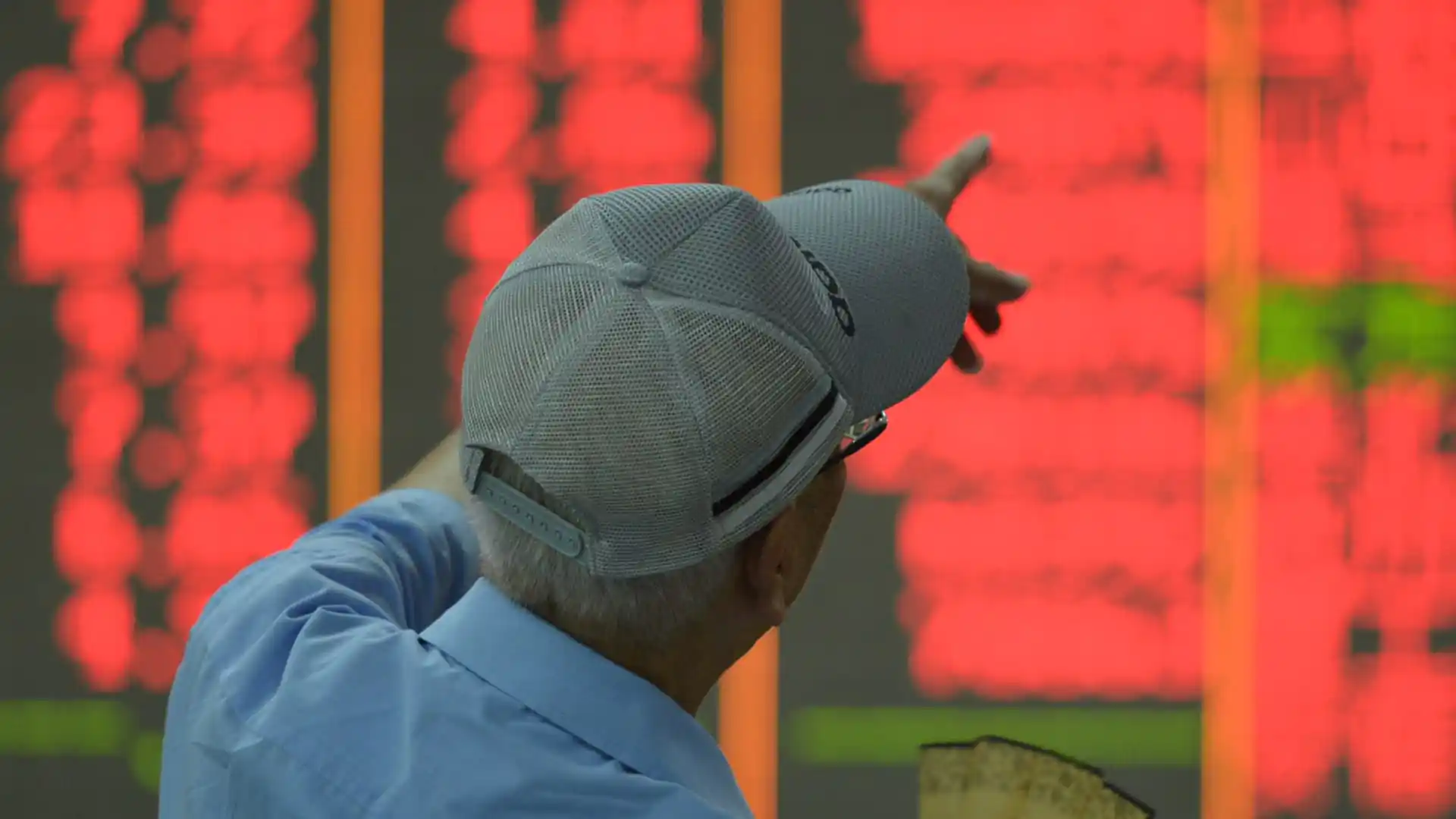[ad_1]
A customer looks at the stock market at a stock exchange in Hangzhou, China, September 27, 2024.
Cost Photo | Nuphoto | Getty Images
BEIJING — The meteoric rise in Chinese stocks so far looks different from the stock market bubble of 2015, analysts say.
Mainland China’s major stock indexes jumped more than 8% on Monday, extending their winning streak on stimulus hopes. Trading volume on the Shanghai and Shenzhen stock exchanges reached 2.59 trillion yuan ($368.78 billion), surpassing the peak of 2.37 trillion yuan on May 28, 2015, according to Wind Information.
In six months, between 2014 and 2015, the value of the Chinese stock market doubled, while debt increased, Aaron Costello, regional manager for Asia at Cambridge Associates, said Monday.
This time around, the market hasn’t grown as much, while debt is lower, he said. “We are not in the danger zone yet.”
Stock market leverage by percentage and value was much higher in 2015 than Monday’s data showed, according to Wind Information.

In June 2015, the Shanghai Composite index surpassed 5,100 points, a level it has never returned to since the market crashed later that summer. That year, MSCI delayed adding mainland Chinese stocks to its globally followed emerging markets index. Beijing’s dithering over a crackdown on borrowed funds trading and the surprise devaluation of the dollar also weighed on sentiment. Chinese yuan against the US dollar.
This year, the yuan is trading stronger against the greenback, while foreign institutional allocation to Chinese stocks has fallen to its lowest level in several years.
The Shanghai Composite Index closed at 3,336.5 on Monday, before mainland stock markets closed for a week-long holiday commemorating the 75th anniversary of the People’s Republic of China. Trading is expected to resume on October 8.
In the run-up to the 2015 stock market rally, Chinese state media had encouragement of stock market investmentwhile loose rules allowed people to buy stocks with borrowed funds. Beijing has long sought to develop its domestic stock market, which, at around 30 years old, is much younger than that of the United States.
Strong political signals
The latest market gains follow announcements last week of economic support and programs to encourage institutions to invest more money in stocks. The news helped stocks rebound from their lowest levels of the year. The CSI 300 rebounded by almost 16% on its best week since 2008.
Chinese President Xi Jinping led a high-level meeting on Thursday calling for an end to the decline in the real estate market as well as strengthening fiscal and monetary policy. The People’s Bank of China also last week reduced interest rates and the amount existing mortgage holders must pay.
“The policy is much stronger and [more] concerted this time than in 2015. That said, the economy faces greater headwinds[s] today compared to then,” said Zhu Ning, author of “The China-Guaranteed Bubble.”
A week of massive stock market gains doesn’t mean the economy is on track toward a similar recovery.
The CSI 300 remains more than 30% below its February 2021 high, a level that even surpassed the index’s 2015 high.
“The Japanese experience offers an important perspective, as the Nikkei 225 index rebounded four times, by 34 percent on average, before reaching a cumulative decline of 66 percent between December 1989 and September 1998,” Stephen said. Roach, a senior fellow at Yale Law. Paul Tsai China Center school, noted Tuesday in a blog post this was also published in the opinion section of the Financial Times.
Economic data in recent months has indicated slowing growth in retail sales and manufacturing. This has raised concerns that China’s gross domestic product will fail to reach the annual target of around 5% without additional stimulus measures.
“I think what’s missing is the key to a lot of this, which hasn’t been revealed, and which would be a real confidence-building measure, is how are they going to turn around local government finances,” Costello said, once pointing to local coffers. depended on the sale of land to generate revenue for public services.
While Chinese authorities have cut interest rates and eased some restrictions on home purchases, the Finance Ministry has yet to announce additional debt issuance to support growth.
Animal spirits at play
Peter Alexander, founder and managing director of Z-Ben Advisors, expects the level of fiscal stimulus – when it is likely to be announced in late October – to be lower than markets are hoping for.
That “may have investors on their skis a little bit, as people like to say,” he said Monday on CNBC.Asian street signs.”
He added in a written response that his experiences in 2007 and 2015 indicate that China’s stock market rally could last another three to six months, or stop abruptly.
“It’s pure animal instinct and the Chinese have been pent up waiting for a stock market rally,” Alexander said. He added that there are market risks linked to the lack of preparation of the stock market system for the wave of purchases.
Data on the number of new retail investors in China this year was not publicly available. Reports indicate that brokerages were inundated with new inquiries, echoing the way individuals rushed into the stock market nearly a decade earlier. The Shanghai Stock Exchange announced Friday that transactions confirmed at market opening had been unusually slow.
Looking for profit growth
“China was cheap and it lacked the catalyst. … The catalyst happened to unlock value,” Costello said.
“Fundamentally, we need to see corporate profits growing,” he said. “If it doesn’t increase, it’s just a short-term problem.”
Beijing’s efforts earlier this year to stem the market rout included changing the head of the securities regulator. Stocks rose, only to see the rally run out of steam in May.
One factor that could push stocks beyond May levels is the stabilization of earnings per share forecasts from downward revisions earlier this year, James Wang, head of China strategy at UBS Investment Bank Research.
Lower U.S. interest rates, a stronger Chinese yuan, an increase in stock buybacks and a more coordinated response from policymakers are also supporting the gains, he said. Wang’s latest price target of $70 on the MSCI China Index is now just a few cents above Monday’s closing level.
— CNBC’s Hui Jie Lim contributed to this report.

